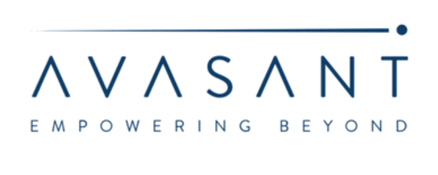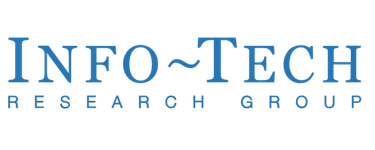In This Edition
- The Uproar Over Vogue’s AI-Generated Ad Isn’t Just About Fashion
By Rebecca Bellan & Dominic-Madori Davis, TechCrunch – August 2025
Read the article → - Universal Detector Spots AI Deepfake Videos With Record Accuracy
By Jeremy Hsu, New Scientist – August 2025
Read the article → - Top Scholars Call for Evidence-Based Approach to AI Policy
By Daniel Rissing, Stanford HAI – July 2025
Read the article → - New NSF Institute at CMU Will Help Mathematicians Harness AI and Advance Discoveries
By Lucy Perkins, Carnegie Mellon University – August 2025
Read the article → - Holistic AI Included in IDC ProductScape for Worldwide AI Governance Platforms, 2025
Holistic AI Staff – August 2025
Download the full report →
The Uproar Over Vogue’s AI-Generated Ad Isn’t Just About Fashion
By Rebecca Bellan & Dominic-Madori Davis, TechCrunch – August 3, 2025
What’s New
Vogue’s July print issue ran a Guess advertisement featuring an AI-generated model. The placement triggered days of online backlash and industry debate about creative labor, consent, and “artificial diversity.” TechCrunch interviewed models, creatives, and technologists across the ecosystem for their take.
Why It Matters
Synthetic talent is appealing due to lower cost and speed, but it raises questions around authenticity, consent/likeness rights, and representation that can affect brand trust and regulatory risk.
Key Implications
- Label synthetic or materially AI-altered advertising assets and maintain a “synthetic media” flag in your asset library.
- Update model/creator contracts to cover digital replicas, training, and derivatives across jurisdictions.
- If you market “diversity” with AI generated personas, expect scrutiny; be transparent or use real people.
- Be prepared to address questions about the choice to use AI-generated advertising content.
The Bottom Line
AI is transforming creative production, offering scale and efficiency but trust and transparency and governance are non-negotiable. Success and customer trust with AI-generated media depends on clear disclosure, consent, and a thoughtful brand strategy.
Universal Detector Spots AI Deepfake Videos With Record Accuracy
By Jeremy Hsu, New Scientist – August 2025
What’s New
Researchers report a promising new universal detector tool that can spot multiple types of manipulated or AI-generated video (not just one generator or technique) and show strong test results across varied sources. The technology helps flag non-consensual AI-generated pornography, deepfake scams, and election misinformation videos.
Why It Matters
Widely applicable AI detection has remained elusive thus far. This represents a significant step forward in being able to more easily tell whether content is AI-generated.
Key Recommendations
- Treat detection as one tool among several. Pair it with content provenance (watermarks or signed metadata) and human review, especially for high-stakes use.
- Test on your own scenarios. Ask vendors to validate performance on realistic threats (executive impersonations, brand assets, paid ads), not just benchmarks.
- Plan for misses and updates. No detector is perfect; set thresholds, log decisions, and update models as new generators appear.
The Bottom Line
While this universal detector is promising progress, it’s not a magic filter. Use it to reduce risk and flag doubtful content faster, while keeping human judgment and provenance checks in the loop.
Top Scholars Call for Evidence-Based Approach to AI Policy
By Daniel Rissing, Stanford HAI – July 31, 2025
What's New
In a new paper published in Science, 20 experts – including Stanford Institute for Human-Centered AI scholars Fei-Fei Li, Yejin Choi, Daniel E. Ho, Percy Liang, and Rishi Bommasani – call for policymakers to ground AI rules in measured evidence and to create structures (testing access, transparency, safe harbors) that generate the evidence regulators need.
Why It Matters
Rules built on anecdotes tend to misfire. Measured evaluation makes it easier to target real risks and update policy as the tech evolves.
Key Recommendations
- Instrument your AI lifecycle. Log tests, incidents, and outcomes now so you can show your work later.
- Budget for independent testing. Expect requests for third-party evaluation and red-teaming.
- Build feedback loops. Treat governance like DevOps: policy → measurement → iteration.
The Bottom Line
According to these scholars, evidence-based AI policy offers the best path forward to capture the innovation potential of AI, while minimizing the risks and building trust among consumers, policymakers, and other stakeholder groups.
New NSF Institute at CMU Will Help Mathematicians Harness AI and Advance Discoveries
By Lucy Perkins, Carnegie Mellon University – August 4, 2025
What's New
Carnegie Mellon University (CMU) launched a three-year pilot institute to pair machine learning with formal, math-based methods to aid AI reasoning capabilities and accuracy. Programs include workshops, summer schools, and a conference. Backed by the National Science Foundation (NSF) and additional support from the Simons Foundation, the Institute for Computer-Aided Reasoning in Mathematics (ICARM) will help researchers strengthen real-world problem-solving in domains like cybersecurity, finance, space and health care.
Why It Matters
As AI moves into high-stakes areas (finance, healthcare, safety), it’s not enough for a model to be accurate, we also need ways to verify its reasoning.
Key Recommendations
- Adopt “checkable” AI for critical tasks. Where stakes are high, explore tools that can prove simple properties (e.g., “never exceed this limit,” “always follow this rule”).
- Build skills through partnerships. Engage with institutes like CMU for hands-on training, collaborative workshops, and targeted problem-solving sessions relevant to your domain.
- Integrate verifiable rules over vague explanations in AI use cases. When possible, trade fuzzy “explainability” for specific checks you can test or audit.
The Bottom Line
This signals a shift toward mathematically-grounded guardrails for AI. It represents a meaningful step beyond explainability and toward verifiability, calling for AI systems that are testable, not just impressive.
Holistic AI Included in IDC ProductScape for Worldwide AI Governance Platforms, 2025
Holistic AI Staff – August 8, 2025
What's New
IDC’s ProductScape for Worldwide AI Governance Platforms, 2025 analyzes major AI governance vendors, including Holistic AI, across 5 essential feature sets. The report specifically highlights Holistic AI's end-to-end data security and enterprise risk management capabilities. This recognition comes as organizations increasingly deploy GenAI across mission-critical applications, requiring powerful yet flexible governance frameworks.
Why It Matters
With the global AI market projected to reach $151 Billion by 2030, it is now more important than ever to adopt a proven, platform-based AI governance framework for your enterprise. This IDC ProductScape provides critical insights for enterprises and technology decision-makers evaluating AI governance platforms and solutions.
The Bottom Line
The report notes that Holistic AI “oversees the entire life cycle of generative AI models, addressing governance concerns such as bias, security, and compliance...the platform offers a versatile approach to ensuring transparency, security, and trust, addressing the complexities of responsible AI deployment across industries.”




